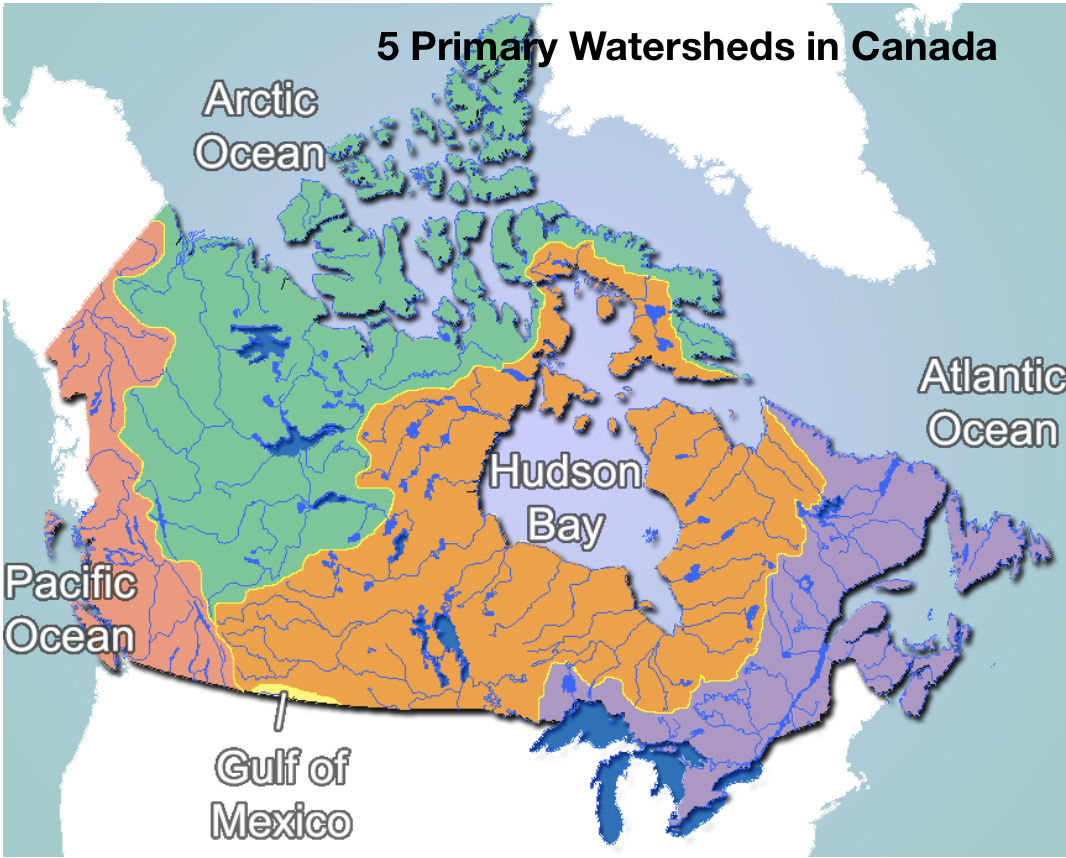A Water What?
If you are here, chances are you're going somewhere else, and have a long drive ahead of you. So, this will be a quick pit stop on route. Enjoy the reading below, answer the required questions, and get on your way! Don't forget to check your fuel levels, gas stations are few and far between out here.
My father was always a jokester. He once told me, when we reached the top of a hill, that water flowed all directions from here. As a kid, I was fascinated by this idea, and as an adult always wondered, "Where were we?" Later in life, I realized he was joking around, we were on top of a hill. Of course all water flowed down. But as a kid, I thought we had reached the highest point on Earth?
But seriously, there is a spot where water splits, and flows in different directions. Well, it's not actually a spot, but rather a line, and I'm sure our governments have spent a lot of $$ trying to identify where this line is. But why? Who cares?
Well, it is important! since what happens in the smaller creeks and streams, influences what is happening downstream, in the larger rivers, lakes and oceans. Imagine this, a stream is dug-up, altered and degraded to such a point that all the trees in the surrounding area are completely disturbed, and may even have been removed. The rain falls, the soil washes away, covering important spawning ground. The small fish fail to thrive, the larger fish that depend on them suffer, the soil erodes, washes down the stream, covering rocks, sand, and changing the flow of the stream. Mercury, from increased natural degradation of organic material increases, further degrading the watershed down stream, eventually making it's way down, and into the ocean, effecting the overall health of the watershed - the people and everything else. Small changes upstream, can make bigger changes downstream, especially if there are a lot of small changes. Yup, watershed management is important, so although we spent a lot of $$ identifying this "line", we can understand why. Small changes make a big difference.

A Watershed is an area of land where all of the water that is under it, or drains off of it collects into the same place, that being an ocean, a lake, or a river. Also known as a catchment basin, a watershed includes all of the land that is drained by a watercourse and its tributaries.
Watersheds come in a variety of shapes and sizes, and are split into 3 categories: primary, secondary and tertiary. Some may also talk about quarteriary watersheds, which are much smaller geographical locations, that often considered tributaries in a tertiary watershed.

Primary watersheds end in an Ocean, or the large salt waterbody they drain into. Canada has 5 Primary Watersheds: Pacific Ocean, Arctic Ocean, Hudson Bay, Gulf of Mexico, and Atlantic Ocean Watershed.

Secondary Watersheds end in large lakes or rivers, and Tertiary watersheds are subdivisions of secondary watersheds in Ontario, and typically flow from small lakes, creeks, rivers into a larger body of water where other tertiary watersheds also drain.

Questions to Answer:
Please send answers to the following questions to the CO at the top of this page.
- What are the 2 Primary watersheds that water near this location flow into?
- Flowing south from here, what is the secondary watershed this water flows through
- Take an Elevation reading at GZ, and compare it to the elevation posted at GZ. Is there a difference, what is it?
- Pick a city in Ontario (may be the one you live - but doesn’t have to be), what primary and secondary watershed is it part of?
Happy Travels!